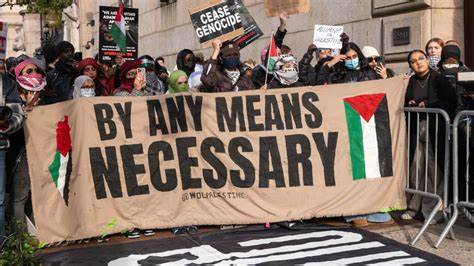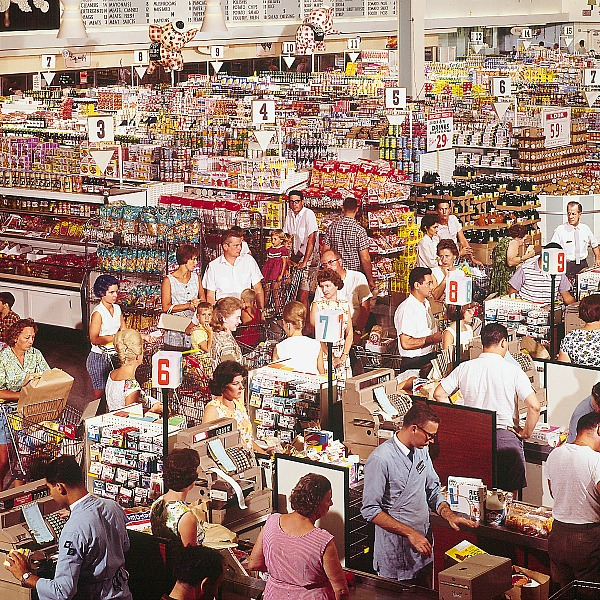A Xicano Speaks: Union
inherited, Union imagined
You ask me to imagine a more perfect union—
be careful! My imagination can go far and wide.
I once strolled along a San Fernando Valley street,
enjoying the way sunlight cuts shadows
from buildings and trees on cement.
Just then a pickup truck drove by and an occupant yelled
“Go back to where you came from?”
What? I am where I came from. Not only US born,
but my family has native ties as deep as anyone’s.
My mother’s tribal roots are in the Chihuahua desert
that stretches across northern Mexico and US Southwest.
I also have African, Mid-Eastern, Asian, and European DNA.
I belong here and everywhere.
But my brown skin now makes me stranger, foreigner,
“illegal.” When did this get turned on its head,
where the brown-skinned don’t have a place?
Five minutes from my house is the largest juvenile
lockup in the country. I go there from time to time
to speak or read poems to incarcerated youth.
At one poetry event, a 14-year-old teen read
a rather sweet poem dedicated to his mother and grandmother,
both smiling from their seats. A staff member later
told me—this young man faced 135 years in prison.
This part of the Valley used to be called “the Mexican side”
—you can’t say that anymore since Mexicans and Central
Americans
are everywhere. There is a community here that thirty
years ago was mostly white. There are stories that
bars back then had signs declaring “No Dogs or Mexicans
Allowed.”
Not long after the mortgage crisis, homeless encampments
popped up across the Valley—under freeway underpasses,
beneath concrete tunnels, deep into alleys. These people
became
part of our community, even though businesses, police,
and homeowners often colluded to push them away.
This is the so-called union we inherited,
one that harkens back to when Natives
were slaughtered and pushed off for land;
when Africans slaved in the fields,
that also fed industries,
that also filled world markets.
Or when migrants from Europe or Asia
crowded tenements and “hollers”
to labor in mills, factories, mines.
It goes back to when US invaded Mexico,
to obtain more land, oil, and minerals,
based on an inane idea called
“manifest destiny.”
Laying the ground for Empire.
I imagine a union where whoever steps on these
soils are welcome, like the way Mother Earth
accepts anyone, including the broken or lost,
regardless of race, gender, sexual orientation, disability.
I imagine a union where poverty is outlawed
instead of the poor. Where resources align to needs,
schools to everyone’s genius, best healthcare to the sick—
not just to those with money.
I imagine a union where if you made mistakes,
the consequences include healing, caring, treatment,
teachings, and a community that recognizes
no one should be judged by their worst moments.
I imagine a union where spiritual morals and scientific
facts are the same, where laws by humans attune to laws
of nature, and where everyone is recognized for their
particular capacities, gifts, and passions.
Now we are at odds, everything divided,
estranged from nature and our own natures
as well as the regenerative powers to return,
give back, provide abundance.
I imagine a world where illusions aren’t needed
because circumstances no longer exist that require
illusions in the first place.
To make sure everyone and everything is healthy,
intact, connected. No want. No hunger. No jails.
That every institution, be it churches, political parties,
marriage, production relations, jobs, and schools,
are up for examination, renewal, re-imagination,
and changed accordingly to the new minds,
hearts, and technologies of every generation.
I don’t think there’s a “perfect” union,
but I imagine one that is whole, encompassing,
solid yet fluid, where we unite
around the essential things,
have liberty around the nonessential things,
and express compassion in all things.
Is that imagination enough for you?
Make
a Poem Cry
“I can’t see ‘em coming from my eye, so I had to make this poem
cry.”
—Jimmy McMillan, an incarcerated poet in California’s prison
system.
You can chain the body, the face, the eyes,
the way hands move coarsely over cement
or deftly on tattooed skin with needle.
You can cage the withered membrane,
the withered dream,
the way razor wire, shouts, yells, and batons
can wither spirit.
But how can you imprison a poem?
How can a melody be locked up, locked down?
Yes, even caged birds sing,
even grass sprouts through asphalt,
even a flower blooms in a desert.
And the gardens of trauma we call the incarcerated
can also spring with the vitality of a deep thought,
an emotion buried beneath the facades
deep as rage, deep as grief,
the grief beneath all rages.
The blood of such poems, songs,
emotions, thoughts, dances,
are what flow in all art, stages, films, books.
The keys to liberation are in the heart,
in the mind, behind the cranial sky.
The imagination is boundless,
the inexhaustible in any imprisoned system.
And remember—we are all in some kind of prison.
If only the contrived freedoms
society professes can flow from such water!
Photo by Marvinlouis Dorsey
Songs Over SidewalksFor the thousands of homeless people in Los Angeles who we can't
forget
Every summer when
Santa Ana winds scatter around dry leaves and dead
tree branches, and droughts make kindle out of the formerly
green,
a human hand or
lightning strike can awaken the fire in all things,
fire that also burns inside each of us, becoming the searing
soul-birth of
creativity—and of dirt, seed-ground for new plants,
flowers, regeneration. Wildfires are metaphor and reality for our internal
and external
terrains. Things come back, but not always like before.
There’s a natural order to life, a rhythm we often miss, but the tones
persist despite our
lack of hearing, of paying attention—or just ignoring.
Tempos and beats come at us every day, every hour, in dark and in light,
as drops of water or
gust-hands on our faces and backs. Los Angeles is music
but also muscles, a rain dance often with no rain, neon glare and
smog-tinged
skyline, held
together in a spider-web called freeways,
a place where even Jacarandas and palm trees are transplants.
This city gives and
takes away, but in nature whatever is removed is returned,
even if in surprising ways, unexpected, with a twist.
The human way is too
chaotic, nonsensical, although laden with inventiveness.
Buildings are bricked, stuccoed, and nailed together with stories,
survival stories, war
stories, love stories, the kind of harrowing accounts
Los Angeles exudes at 3 am, when ghosts meander the upturned pavement,
rumble by on vintage
cars, and all-night diners convert to summits for
the played out, heartsick, and suicidal, fodder for Hollywood scripts or L.A.
noir novels. There’s
a migrant soul in this rooted city, Skid Row next to
the Diamond District, waves of foam against barnacled piers,
cafes and boutiques
next to panaderias and botanicas. Ravines and gulleys
turn into barrios, rustic homes with gardens dot bleak cityscapes,
and suburbs burst
with world-class graffiti. Fragmented yet cohesive,
Los Angeles demands reflection of ourselves, and the unstable ground
we call home. As in
nature, the inequities can be breached, the gaps bridged,
for home is also an invitation to care, to do whatever
balances, whatever
complements, whatever unites and clarifies,
as poverty, violence, and uncertainty shake up safety and sanity.
The key is for human
law to align to natural law, for people to proclaim
“Enough is enough” and “What I do matters,” with deep
examination, proper
adaptation, full cognizance. No persons should die for lack
of a roof or food or compassion. As John Fante would say,
they are “songs over
sidewalks,” imaginations on the interchange,
humanity that deserves connection, touch, breath. These roads, bridges,
alleys also contain
concertos. Breezes over ocean’s darkest depths are rife
with harmonies. And a howling moon and red sunset serve as
backdrops
for every aching
interlude, soundtracks to revive the inert. Los Angeles is
where every step rhymes, where languages flit off tongues like
bows across
strings, skateboarders,
and aerosol spray cans clatter as daily percussion,
and angels intone “we can do better,” while haggling at garage
sales.





























